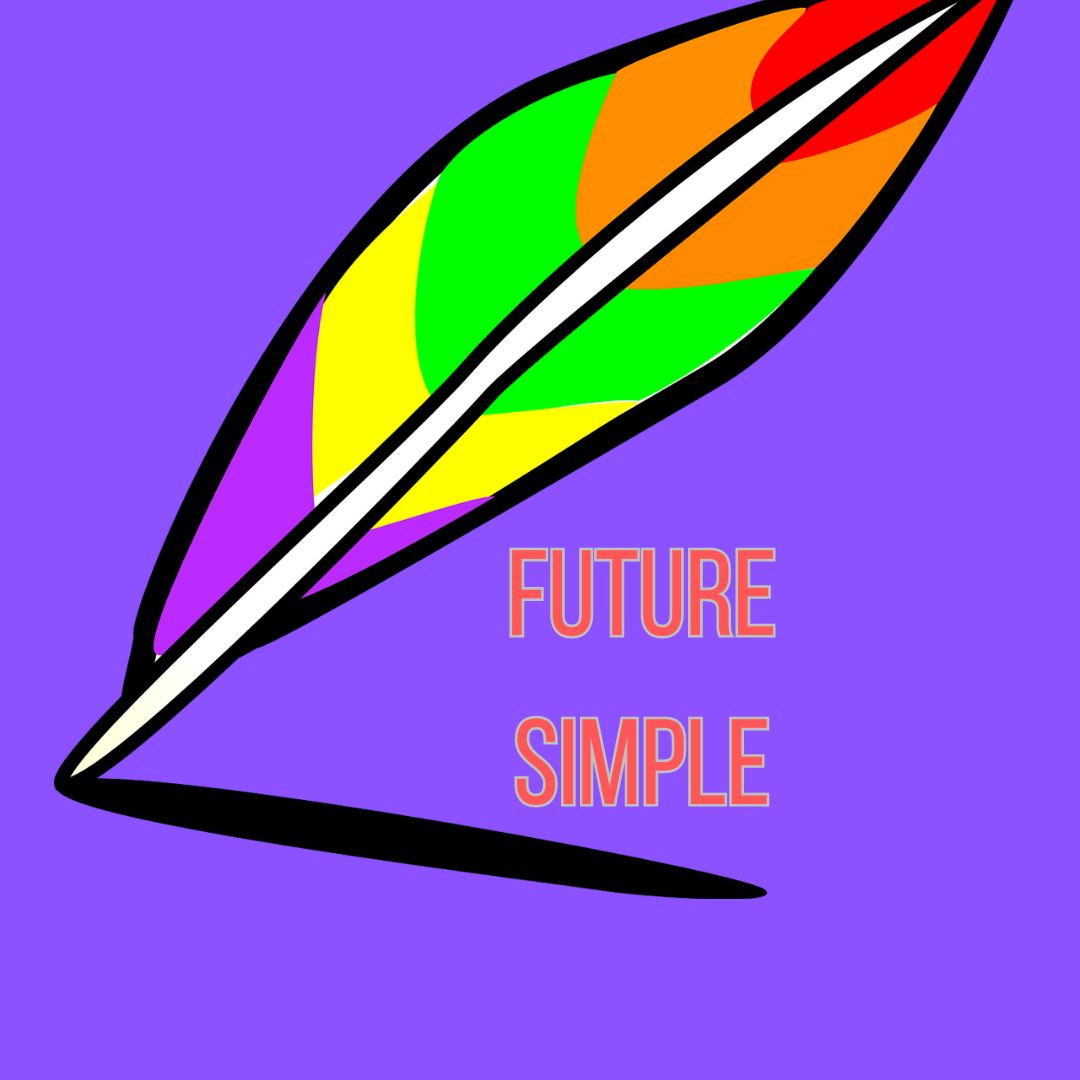The Future Indefinite tense ( the Future Simple)

The Future Simple Tense:
Affirmative:
Subject + will + base form of the verb
Example: I will call you tomorrow.
Common adverbs that can be used with the Future Simple tense are:
Tomorrow, soon, later, next week, month, or year, eventually, shortly, imminently, eventually, one day,
inevitably, predictably, undoubtedly, surely, certainly.
Negative:
Subject + will + not + base form of the verb
Example: They will not come to the party tomorrow.
Question:
Will + subject + base form of the verb?
Example: Will you be able to make it to the meeting tomorrow?
The Future Simple tense formation (table 1)
| Affirmative | Negative | Question | |
| Subject | will + base form of the verb | will + not + base form of the verb | will + subject + base form of the verb? |
| Example | I will go to the store later. | They will not be here tomorrow. | Will you come to the party tonight? |
The Future Simple tense is used to describe:
Actions or events that will happen in the future.
It can also be used to make predictions, express willingness or intention, or make promises or offers.
Examples: I will meet you at the airport tomorrow.
It will rain later today.
She will help you with your project.
We will definitely consider your proposal.
He will not be able to come to the party tonight.
The Future Simple and the Present Continuous tense
usage for future action:
The difference between expressing future actions with the Future Simple and the Present Continuous is related to the speaker’s perspective on the future action.
The Future Simple is used to talk about future actions that are not yet happening at the moment of speaking. It expresses a prediction or an intention to do something in the future.
For example, I will go to the gym tomorrow morning.
In this sentence, the speaker is expressing their intention to go to the gym tomorrow morning.
The action has not yet happened, and the speaker is simply making a prediction or stating their plan for the future.
On the other hand, the Present Continuous is used to talk about future actions that have already been planned or arranged. It expresses a future action that is already in progress or is about to start soon.
For example, I am meeting my friends for dinner tonight.
In this sentence, the speaker is indicating that they have already made plans to meet their friends for dinner tonight. The action has been arranged and is going to happen in the near future.
In summary, the Future Simple is used to express a prediction or intention to do something in the future,
while the Present Continuous is used to express a future action that has already been arranged or is in progress.
The Future Simple tense in various situations (table 2)
| Situation | Example |
| Future plans or intentions | I will travel to Paris next month. |
| Predictions about the future | It will rain later this afternoon. |
| Decisions made at the moment of speaking | I can’t decide which book to read, but I will choose one soon. |
| Offers or promises | I will help you with your homework tonight. |
| Assumptions or beliefs about the future | She will probably be late again. |
| Predictions based on current evidence | The company’s profits will increase this quarter. |
| Conditional statements | If I have time this weekend, I will clean the house. |
Note that Future Simple can also be used for polite requests or to make suggestions.
For example, Will you please pass me the salt?
Or shall we go to the movies tonight?
A table showing the formation of the future simple tense in all situations, as well as examples: (table 3)
| Situation | Formation | Example Sentence |
| Affirmative Statement | Subject + “will” + base form of verb | She will study for her exam tomorrow. |
| Negative Statement | Subject + “will not” + base form of verb | They will not go to the party tonight. |
| Interrogative Statement | “Will” + subject + base form of verb | Will you come to my concert next week? |
| Interrogative Negative | “Will not” + subject + base form of verb | Won’t she be disappointed when she hears the news? |
| Polite Request | “Will” + subject + base form of verb |
Click here The Future Indefinite tense ( the Future Simple)
Click here The Past Indefinite Tense ( The Past Simple)
Click here The Present Indefinite Tense (the Present Simple)
Click here The Indicative Mood – the Active Voice
Click here What is the Mood of a Verb?